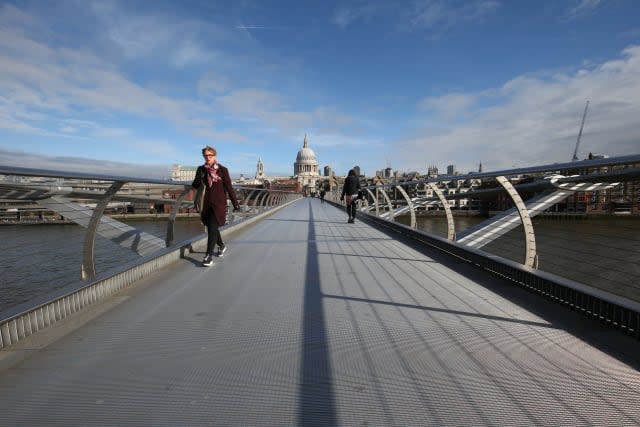Travel and leisure firms badly hit as stock market freefall continues

The London stock market continued its freefall on Tuesday as the impact from the coronavirus pandemic hit virtually every UK-listed business, amid suggestions that exchanges around the world could be paused.
The leisure and travel sector were hardest hit, following the announcement by Prime Minister Boris Johnson that people should stay away from pubs and restaurants and work from home.
Several companies reacted by warning that without Government intervention they risked mass unemployment and businesses collapsing.

The FTSE 100 index of leading shares was down a modest 1.8%, by comparison with recent record-breaking falls, by midday, as investors and businesses waited to see what financial support the Government could offer.
Leading the falls were companies including Great Western Railway operator FirstGroup, down 26%, coach business National Express, off 22%, and Thameslink operator Go-Ahead, down 16%.
The businesses saw a massive drop in customers as commuters switch to working from home and the public are urged to avoid social contact.
Retailer SSP, which specialises in running travel hub stores, saw shares plunge 22%.
Several pub and entertainment groups also took a severe hit as companies warned they had been left in a legal limbo with insurers because the Government had not officially shut their sectors.
Brewer and pub owner Marston’s shares were down 33% by midday, Cineworld fell by 27% and Mitchell & Butlers’ shares were off by 14%.
But there was some balance, with internationally-focused businesses enjoying a boost from the various funding measures announced by other governments.

Retailers also saw shares rise as self-isolation led to more households stocking up. Ocado shares were up 8.2%, following a boost in Sainsbury’s shares on Monday.
In the US, talks about potentially pausing stock markets has been floated, and, although officials have ruled it out for now, some still feel a change could come.
Neil Wilson, an analyst at Markets.com, said: “Until there is better knowledge of the situation on the ground, until the economic damage is known, and until we see a genuine spike in cases in the US and Europe, volatility levels will remain extremely high.
“There had been chatter that regulators would start to think it’s time to call a halt to this, that they will step in to shutter stock markets for a limited period in an attempt to regain control of the situation.”


